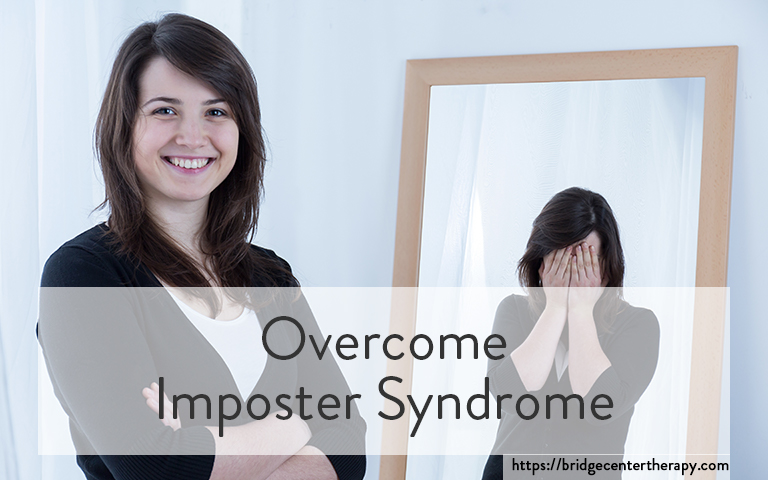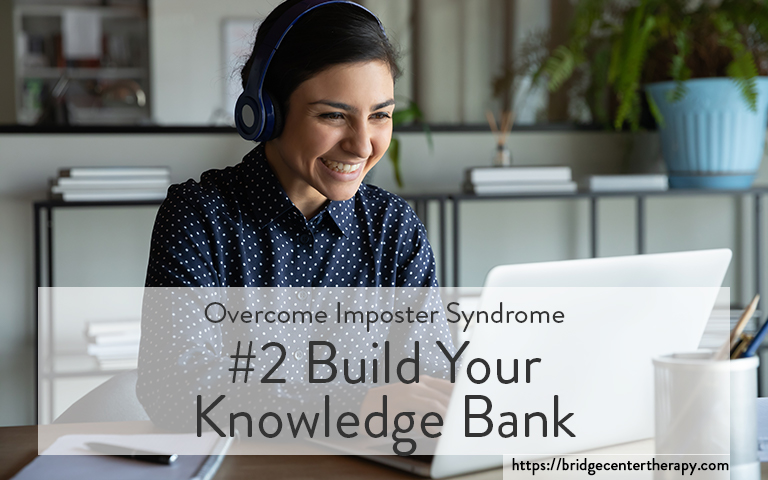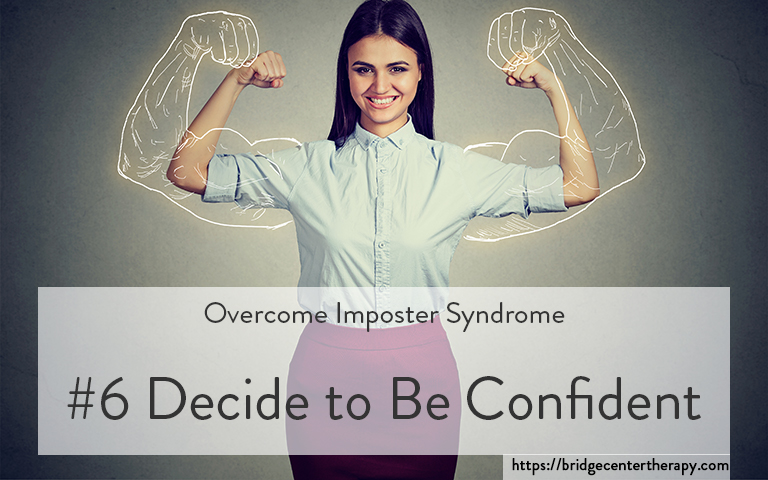
You have a nagging feeling that you’re not good enough. You don’t belong. There must have been some mistake. Soon everyone will know that you’re a fraud.
Imposter syndrome is a psychological phenomenon that reflects your belief that you are an inadequate and incompetent failure – despite evidence that indicates you are in fact skilled and quite successful.
You can get there from here.
You are not alone. An estimated 70% of people experience imposter syndrome at some point in their lives. As human beings, our brain is programmed to focus on negative things. Quite often we view some situations or things as dangerous or as threats, which lead us to feel like a fraud. It affects all kinds of people.
The only way to stop feeling like an imposter is to stop thinking like one. Here are some helpful tips.
Notice and observe the thought. Ask yourself, “Is this thought helping or hindering me?”.

2- Build Your Knowledge Bank
The more you focus on learning and professional development, the more power you will have.
Acknowledge your achievements. List your skills. Give yourself positive feedback.
4- Seek Out a Mentor
Ask a senior colleague, teacher or coach to help give you guidance and navigate unfamiliar territory.
Instead of seeing your mistakes as something to be ashamed of, treat them as learning experiences.

Literally push yourself to be more confident. Raise your hand. Volunteer your expertise.
Individual therapy with a therapist or coach can give you the tools to break the cycle of self-doubt.
Need Help? We Can Help.
Overcoming Imposter Syndrome isn’t about eradicating all feelings of inexperience, but rather understanding that being a professional is a constant opportunity for growth and development. It’s normal to experience moments of doubt. Failing, losing and being wrong will happen sometimes. Don’t let it define you. And don’t let the doubt consume you.
Do you need individual therapy? Call (510) 497-4174 today to schedule a free consultation.
This post was written by Lani Gouws on behalf of The Bridge Therapy Center. If you have any questions or require more information, please contact Lani here: lani@bridgecentertherapy.com
